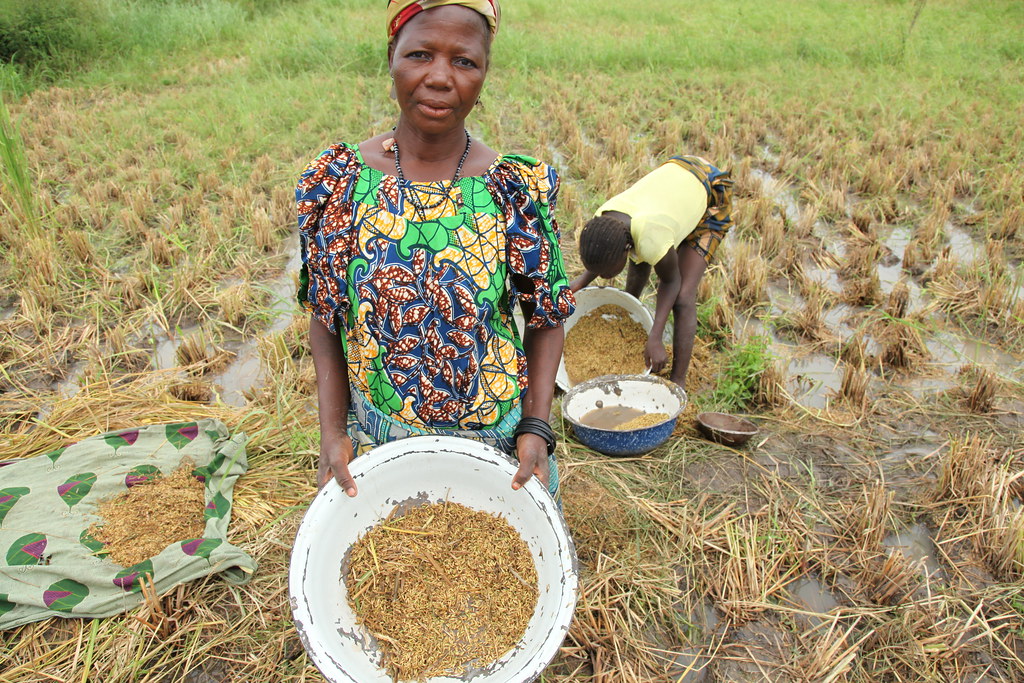A Strange Occurrence

During a busy day in a Lagos food market, an unsuspecting customer purchases a surprisingly cheap batch of 10 cups of rice. The bag is labeled “Best Tomato Rice.” It is almost the holidays; this Nigerian staple is in high demand. The customer carries the bag home, and pours it in a pot to boil and cook.
It wasn’t until half an hour later that Kikelomo Adediti noticed that the rice remained hard, and a strange, chemical aroma was emanating from the pot. A shadow of doubt began to nag at the back of her mind. It is November.
It would not be until nearly a month later that the Nigerian Custom Service would cease 102 bags of “Best Tomato Rice,” with the country’s National Agency for Food Drug Administration Control fending off rumors that the rice was, indeed, plastic.
How Did This Happen?

What led approximately to 221 bags of fake rice, weighing near 2.5 tons, to be smuggled into market stalls in the Ikeja neighborhood of Lagos, was ultimately a combination of inflation and culture.
Some background: In 2015, a bag of rice cost, on average, NGN 10,000. Now, the average bag costs nearly double that price. Convert that amount into USD, and you’d be paying a painful $63 per batch.
What pizza and PB&J are to Americans, rice is to Nigerians. It’s the blueprint for the majority of Nigerian dishes. Combine these factors within a bustling holiday season where customers are scouting for the cheapest deal, and this situation would be ideal for smugglers to infiltrate Nigeria’s permeable borders.
The Debate

After the outcry, a messy and murky debate ensued between the National Agency for Food Drug Administration Control, Nigerian citizens, and the Federal Operations Unit. Was the rice really “plastic”, or was it tainted with microorganisms? Or, as a public relations officer for the assistant superintendent of customs observed, it was “flour coated in maybe rubber.”
All of this speculation does not help put Nigeria’s food safety administrations in a favorable light. With fingers pointed at factories in China producing this inedible rice, and competing government organizations and international groups throwing their two-cents into what the “rice” is actually composed of, people like you and me are ultimately distracted from, perhaps, the most fundamental problem.
The fact is, putting hazardous, inedible food on the market, and allowing it to circulate to people’s kitchens is just another indicator of the gross inequality between countries.
Smuggling and selling seemingly “edible” food products is nothing new. China has supposedly been mass-producing faux rice for five years, and exporting them to countries such as India, Singapore, Vietnam, and Indonesia. With food prices accelerating worldwide, the market for cheap, albeit indigestible food, is all too appealing for these companies.
Why It Matters

So yes. How the rice ended up in Nigeria matters. What the rice is composed of matters. But you’re probably wondering why you should even care about a community of people halfway across the world when you have an essay to finish in two hours or you’re trying to finish binge watching another season of Gilmore Girls.
The media frenzy that has sprung up around the clickbait title of “Plastic Rice in Nigeria” only mirrors a sad reality of how we view the world today. After countless articles read (which are linked throughout this article), reporters seem to be more concerned over whether the rice is even “fake” in the first place.
The real concern here is the lack of shock and the lack of initiative to address this problem. The plastic rice dilemma fits nicely into the narrative of a poor African state that’s plagued by inflation.
Why is no one so much as raising an eyebrow over this phenomenon? It is time to address these questions, because let’s face it, no one deserves 10 cups of a synthetic, chemical lie, with the world so much as batting an eye.


